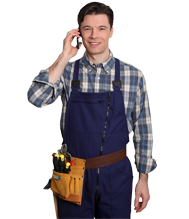Sliding glass doors, a symbol of modern architectural design, offer more than just access between spaces. They are a unique blend of aesthetics, functionality, and sustainability, significantly upgrading the living and working environments. The purpose of a sliding glass door is multifaceted, encompassing aspects of design, practicality, and energy conservation, making them a vital element in modern construction.
The Purpose of Sliding Glass Doors
The primary role of sliding glass doors is to serve as a functional yet elegant transition between indoor and outdoor spaces. They are designed to offer expansive views, bringing the beauty of the outside world into the comfort of your home or office. This feature is not just about aesthetics; it significantly impacts the feel of a space, making it appear larger and more connected with the environment. Additionally, sliding glass doors flood interiors with natural light, enhancing the ambiance and reducing the need for artificial lighting during daytime hours.
Style and Functionality
Sliding glass doors embody a perfect fusion of style and practicality. Their sleek, contemporary design makes them a favorite for those seeking a modern, minimalistic look. This style, however, doesn't compromise their functionality. The space-saving nature of their sliding mechanism makes them particularly useful in areas where traditional swing doors might be cumbersome. The wide glass panels allow for uninterrupted views and contribute to the overall aesthetic value of the building, making a statement of elegance and modernity.
Energy Efficiency
The energy efficiency of sliding glass doors is a paramount feature often overlooked. Modern designs incorporate features like double or triple glazing, low-emissivity coatings, and thermal breaks to minimize heat transfer. This technological advancement ensures that the doors help maintain a consistent indoor temperature, reducing the reliance on heating and cooling systems. This leads to energy savings and contributes to a more sustainable living environment. The natural light that permeates through these doors further decreases the dependence on electric lighting, enhancing energy conservation.
Security Matters
Incorporating sliding glass doors doesn't mean compromising on security. Contemporary designs prioritize safety with features like multi-point locking systems, reinforced frames, and tempered or laminated glass. These elements ensure that while the doors provide visual and functional benefits, they also offer robust resistance against potential intruders. The evolution of sliding door security features reflects a commitment to balancing aesthetic appeal with the essential need for safety and peace of mind.
Easy Maintenance
The ease of maintaining sliding glass doors adds to their appeal. Unlike more complex door systems, the straightforward design of sliding doors ensures fewer components are prone to wear and tear. Regular cleaning of the glass to maintain clarity and visibility, coupled with the occasional maintenance of the tracks and rollers, is typically sufficient to keep these doors operating smoothly. This ease of maintenance saves time and prolongs the door's life, making it a practical choice for both residential and commercial settings.
Quiet Comfort
An often-underappreciated advantage of sliding glass doors is the serene environment they help create. Quality sliding doors are engineered to operate silently, ensuring that their movement is smooth and noise-free. This characteristic is particularly beneficial in environments where tranquility is paramount, like in residential bedrooms, offices, or meeting rooms. The absence of noise when opening or closing these doors enhances the overall sense of peace in a space, contributing to a more comfortable and focused environment.


